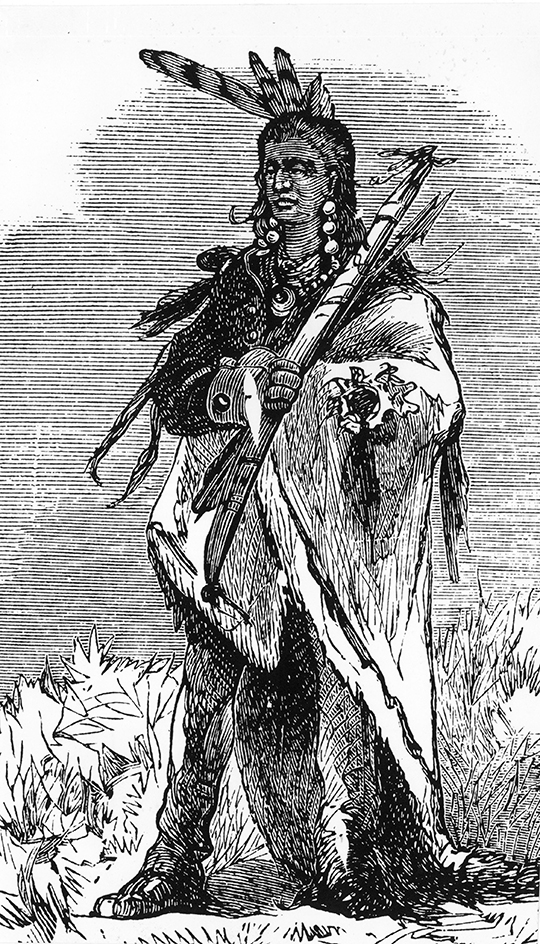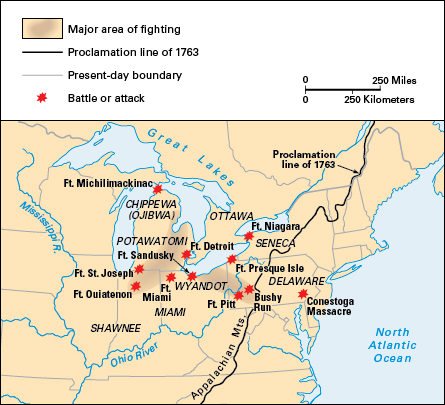Pontiac, << PON tee `ak` >> (1720?-1769), a chief of the Ottawa tribe, was an important Native American leader during the 1760’s. Pontiac tried to unite several tribes to maintain Native American control in the Great Lakes area and in the Ohio and Mississippi valleys.

During the French and Indian War (1754-1763), Pontiac led his tribe in fighting with the French against the British. But he opposed the claims of both sides to the territory west of the Allegheny Mountains. After the British achieved major victories over the French in 1760, they sent a small force to take over the abandoned French forts near the Great Lakes. Pontiac let the British pass through the area. But after he got promises of help from the French, he made plans with nearby tribes to attack the British.
In the spring of 1763, Pontiac led an attack on Fort Pontchartrain, at what is now Detroit. He besieged the British post for about five months. Pontiac also sent runners to other tribes in the region to encourage them to attack British forts, and eight British posts were quickly captured. However, France sent no help to Pontiac and his forces, and the Native Americans could not continue the war without more guns and ammunition.

Pontiac was probably born in northern Ohio. He became a priest of a religious group called the Midewiwin, or Grand Medicine Society. Pontiac agreed with the Native American holy man known as the Delaware Prophet, who preached that Native Americans should abandon all trade with white people. Pontiac was mysteriously killed on April 20, 1769, at an indigenous (native) religious center in Cahokia, Illinois.
